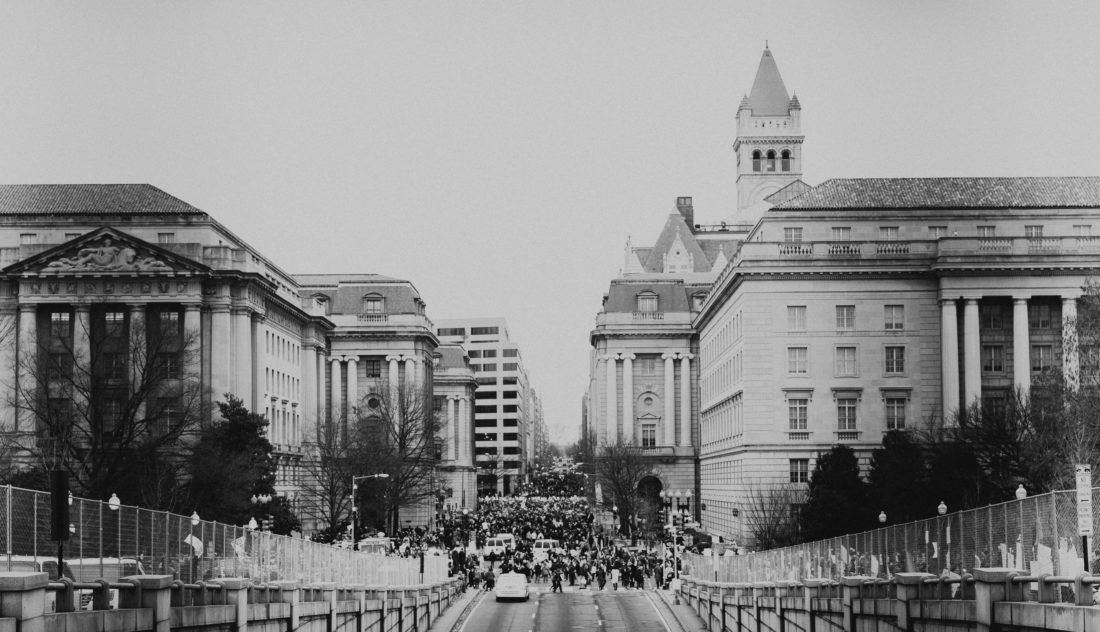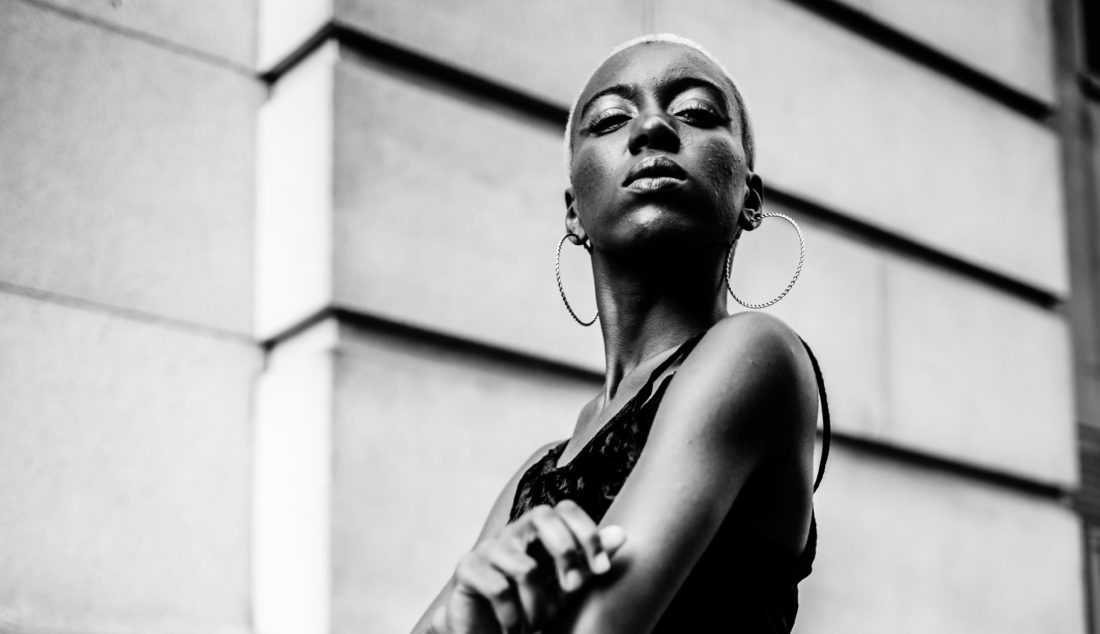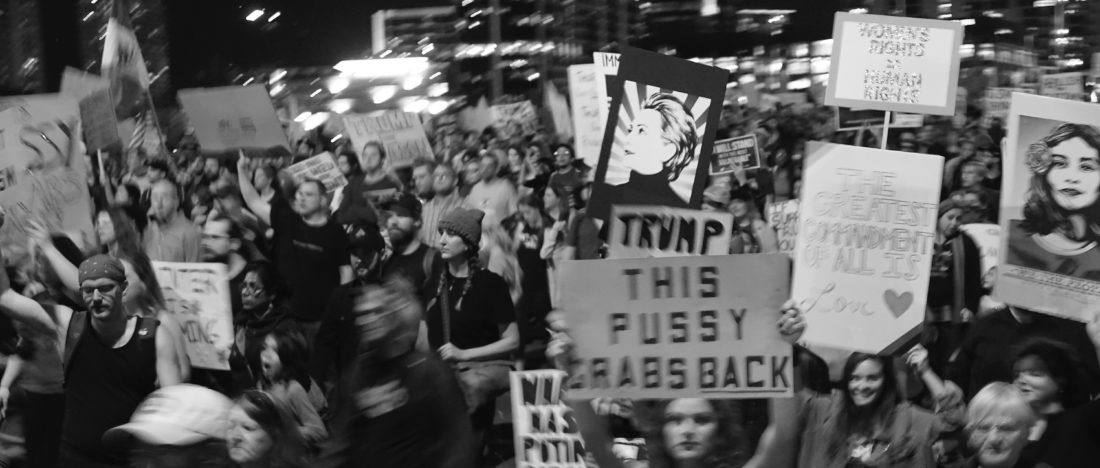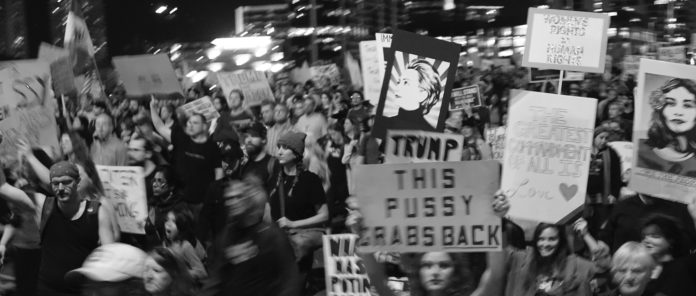Strong. Powerful. Overrated. Necessary. Equality. Confusing. Future. Truth. Unpleasant. Empowerment. Brilliant. Reasonable. Change. Rights. Judging. Cool.
[embedyt] https://www.youtube.com/watch?v=apfuqpFQPmg[/embedyt]
Misunderstood.
Feminism – One term, many emotions, many associations, too much confusion. I won’t try to give you a definition of this term, because frankly, I don’t have one, I’m not even sure if there is one right definition.
But here is my story: an attempt to raise awareness, to spark discussions, to get people thinking.
It was a windy Tuesday afternoon in Melbourne. With a cup of coffee in front of me, I found myself amongst hundreds of students, waiting for a speech on equality. A young woman stepped behind the microphone and the room went silent. She introduced herself and started to give a talk that would open my eyes in ways I never thought possible.
Before I continue, you have to know this: For a very long time, I would not talk about feminism. I didn’t know enough about it to raise my voice, I thought. It would only be a pointless discussion, I thought. I was not a feminist anyway, I thought.
But that day, something inside me changed.
On that Tuesday, a young women shared her experience as a leader in a ‘male-dominated’ industry and the inequalities that are still part of our everyday lives. I came to the realization that it was time to learn and to speak up.
I want to talk about this misleading term “feminism”, about equality, about the truth, for men and women.
And above all, about freedom.
Where The Term ‘Feminism’ Came From

Before going into the discussion of what the term means today, I’d like to take you back in history. It’s a brief journey through three waves of feminism, each reflecting different ‘feminist goals’, struggles and directions of the movement.
First Wave – The Right to Vote
In the 19thcentury women in the UK and the United States started to raise their voices: They wanted equal contract and property rights. By the end of the 19thcentury, however, their activism focus turned towards political power and they started fighting for equal rights to vote. Although women in the United States were granted the right to vote in 1919, women in Saudi Arabia have only had the right since 2015.
Second Wave – Women’s Liberation

In the 1960s and 1970s, people started to question traditional power structures of society. Equal rights on paper existed in some countries but oppression was still present in reality: Women earned less and faced immense difficulties entering a career. While learning more about the second wave feminism, the writings of Simone de Beauvoir caught my attention. One quote in particular:
“The point is not for women simply to take power out of men’s hands, since that wouldn’t change anything about the world. It’s a question precisely of destroying that notion of power.”
People strove for a movement towards true equality. It wasn’t about putting anyone on the throne, it was about getting rid of the throne that had caused discrimination and oppression in the past decades.
A new argument that was raised during this wave, was the lack of minority voices in the women’s movement. Gloria Jean Watkins pointed out that feminism has simply ignored influences such as race and class, failing to address diversity amongst women.
Third Wave – Freedom of Choice

The wave from the 1990s to the present is also considered a response to perceived failures of the second wave. The discussion of wage gap, as well as the inclusion of minorities is still present.
But in general, women are now encouraged to define feminism for themselves – they should do whatever they think is right, instead of feeling pressured by the old feminist movement. Want to stay home with the children? Go for it. Want to become a leading CEO? Go for it. Want to bake cupcakes for a living and live with 8 cats? Go for it.
It’s about freedom of choice. It’s about the equal right for everyone to live the life that makes them happy. If it were only that easy…
Everyone seems to know better than the other what feminism is about today. There is not a single definition, not an agreement about the ‘goals’ and sadly, plenty stereotypes about the ‘perfect feminist’.
Feminism – Beyond Gender

In some countries, women only have partial access to financial services and are not allowed to drive. As mentioned before, Saudi Arabian women have only had the right to vote since 2015!
It is important to realize that equality is still far away for many individuals.
Another important fact is that gender is not the only factor which causes different treatment of people. Our skin color, our religion, the language we speak, where we are from, who our parents are and even the way we look will influence the way we are treated, depending on where in the world we are.
In the book ‘The Second Sex’ Simone de Beauvoir shares a dream she has:
“I wish that every human life might be pure transparent freedom.”
Personally, I can’t begin to imagine the restrictions millions of women and men still face in the world and the inequalities they are confronted with every single day. I now know, that I will learn more about them though in order to support a movement towards a ‘free’ future. You can call it a feminist future, an equal future, an empowered future; the term we use doesn’t matter as long as we know what we believe in and what we stand up for
Today’s Misperception/ Why I never called myself a Feminist

Feminism, to me, meant a lot of things, but not necessarily equality. I never called myself a feminist due to numerous misperceptions the media had created.
I thought I couldn’t be a feminist – I don’t go protesting, I don’t hate men, I don’t agree that the future should be female, I love to wear make-up and high heels, I just don’t fit into the box of today’s feminists.
But hold on, this box for the perfect feminist is absolutely ridiculous.
The media has done a pretty good job of creating it: throwing images at us of women protesting, burning their bras, wearing T-Shirts with quite offending slogans.
I wanted to learn more about this ‘movement’. So I did my homework and here is what I learned:
Emma Watson’s talk in front of the UN opened my eyes. Feminism is not about putting labels on people, it’s not about hating men and it’s most definitely not about treating women better than men. It is about the progress towards an equal world. It is about empowering each individual to live freely, despite gender, race or sexual orientation.
I don’t care what you call it. But fact is, we need a movement that works towards equality. Call it what you want.
3 Myths That Need to be Talked About
Men are not affected.

Again, I would like to refer to Emma Watson’s talk at the UN. She made an important point: Men suffer from gender stereotypes too. In fact, in the UK, suicide is the number one killer of young men! The reasons can be argued about but how often are men looked down on when they seek help? How often do men not even dare to seek help because of the fear of society’s judgement? How often do men feel like they have to live up to certain standards?
Men are stuck in gender boxes, differently than women for sure, but they are affected.
So this goes out to the male readers in particular: Ask yourself, what is your role in this movement towards a more equal world? How will you work towards a future of freedom?
Wage gaps are not real.

Getting less money than a person who is doing the exact same job is not fair. That is a simple fact. While factors such as age, experience and education are used by some people to explain or even justify this gap, I would like to give you some tough facts at this point. (I just want to note that these statistics focus on women of specific countries and do not even take into account minorities specifically or women in less developed countries!)
In 2017, women working full-time, year-round in Louisiana only earned 70% of what men were paid! In Australia, the full-time gender pay gap is still as high as 15.3%, equaling $253,70 less per week.
There has been progress, but if it continues to move at this speed, women will have to wait until 2119 for equal pay in the United States.
However, there is hope. Countries such as Iceland and Finland have scored above 0.84 on the Global Gender Gap Index in 2016 (where the highest possible score is 1 – equality).
Wage gaps are real though. All over the world.
We’ve made enough progress towards an equal world.

Yes, there has been a lot of progress and a strong movement towards an equal world.
Have we arrived at an end? After reading this article, I hope your answer is no.
There is a great need for education about this topic. Myths have to be clarified and above all, every single individual, women and men from every country, should find their role in this movement. We should learn about the problems others are facing, raise awareness, start discussions, be brave and thought provoking if we have the freedom to do so!
What now?

I won’t tell you what to believe in or what to call yourself. What I do ask everyone out there is to open your eyes to the issues people around the world are facing – men and women. Different cultures have different problems, different genders have different problems, every single individual faces different problems.
A problem none of us should be facing, is equality. And it is up to us, each and every one of us, to shape a future of freedom.
Big thank you to Jennifer Hinrichs for editing!






















